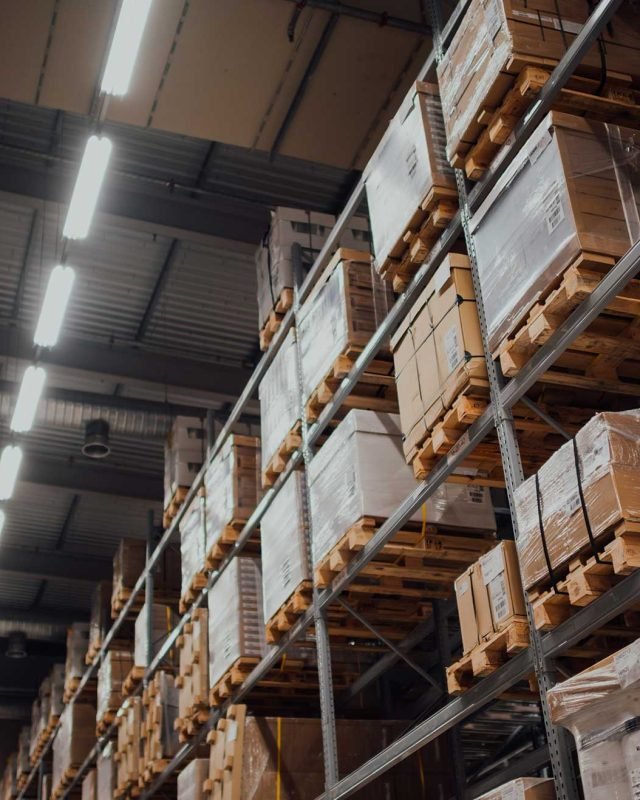The white paper by Eurogroup Consulting and Newton Vaureal offers a comprehensive analysis of the evolving supply chain landscape in the GCC region. It emphasizes the region’s commitment to integrating supply chains into global frameworks, fostering conditions for enhanced integration, and bolstering supply chains through the development of local production capabilities. This document also shines a light on the rapid emergence of the GCC as a key business hub, with a focus on its efficient infrastructure and advantageous tax environments. The pivotal role of supply chains as a catalyst for economic transformation is highlighted, alongside the necessity for ongoing adaptability in managing supply chain performance. The paper concludes by highlighting key projects and achievements across the GCC, such as the national industrial and logistics development program, the Jebel Ali port, and Bahrain’s position as a global sea-air hub.
The report notes that GCC countries have tailored logistics solutions to their individual needs, leading to the establishment of numerous free-trade zones. Saudi Arabia, for example, has set up special economic zones to draw investment and has recently launched an innovative economic zone with Apple as a key investor. The GCC’s free-trade agreements with various nations and trading blocs underscore its ambition to become a global business nexus. The evolving policy on local sponsorship on company boards, especially in the UAE, which now allows foreign ownership in certain commercial areas, is a significant step. With a unified external tariff system featuring a 0% rate for essential goods and a 5% rate for other products, the GCC aims to advance the maturity of its manufacturing sectors. Saudi Arabia, in particular, is focusing on Industry 4.0 and local content, with its national industrial and logistics development program designed to establish the country as a major industrial and global logistics hub.
By 2030, Saudi Arabia strives to be among the top ten countries in the Logistics Performance Index. In the 2022 rankings, it jumped 17 spots to 38th. To reach this goal, the Kingdom needs to enhance aspects like trade facilitation, regulation, customs procedures, and infrastructure. Noteworthy improvements include reducing customs clearance time to an average of 2 hours and offering incentives for foreign investors. The paper identifies five key areas for supply chain transformation in the GCC: updating logistics master plans, elevating organizational maturity, focusing on sustainable development, enhancing urban logistics for smart cities, and achieving operational excellence. It emphasizes the importance of addressing both current and future organizational needs in logistics planning and enhancing the skill set of supply chain employees, particularly in light of local employment quotas.
Opportunities for transforming supply chains in the GCC include greater reliance on railways for logistics, preparing for alternative fuel technologies, exploring waterways, sustainable urban development for efficient last-mile delivery, and decarbonizing warehouses. With a commitment to carbon neutrality by 2060 and a transition to renewable energy by 2030, the GCC is focusing on sustainability. For instance, warehouses, which account for a third of logistics chain CO2 emissions, can be made more sustainable through low-carbon construction and energy-saving measures. Projects like Talabat’s delivery robots and Saudi Arabia’s integrated logistics park are examples of such initiatives.
Groundbreaking urban planning in the GCC is reshaping supply chains and logistics. Prominent projects include Saudi Arabia’s smart cities, NEOM and Oxagon, which are designed to be carbon-neutral and leaders in port logistics. The rise of e-commerce and rapid urban trade presents challenges in last-mile delivery, but initiatives like Saudi Arabia’s national addressing system and what3words are improving addressing systems. For GCC businesses, achieving operational excellence is crucial to optimizing their operations and maintaining sustainability. This involves focusing on service rates and leveraging technological systems for enhanced efficiency. Eurogroup Consulting is actively supporting supply chain transformation and operational improvement in the Middle East.
Key figures to consider:
- Economic Diversification: GCC countries, particularly Saudi Arabia with its Vision 2030, are aiming for a diversified economy with a projected investment of $1.7 trillion by 2030 to lessen their oil dependency.
- World-Class Infrastructure: Substantial investments are being made to develop ports and logistics hubs, such as the NEOM project in Saudi Arabia, which involves a planned $500 billion investment.
- Free Trade Agreements: The GCC’s numerous free-trade agreements are key to increasing international trade and solidifying their status as global business centers.
- Local Manufacturing: Focusing on local manufacturing, especially in Saudi Arabia with its industrial development program, aims to raise the local production share, thus boosting the manufacturing sector’s GDP contribution.
- Carbon Neutrality Goals: The GCC’s commitment to achieving carbon neutrality by 2060 includes substantial investments in sustainable initiatives, estimated in the hundreds of billions of dollars.
- Urban Logistics Transformation: Significant investments are being made in urban logistics projects like delivery robots and smart warehouses, with notable projects like the NEOM smart city in Saudi Arabia.
- Business Pressures: GCC businesses are under increasing pressure to enhance operational excellence, with investments in tracking and efficiency technologies estimated to reach tens of billions of dollars.
These figures highlight the extensive investments and commitments by GCC countries in revolutionizing their supply chains





